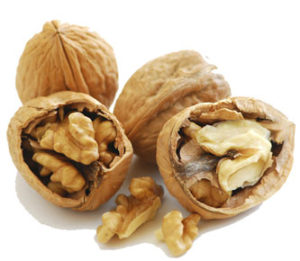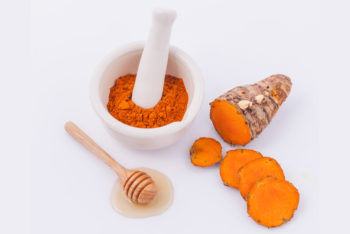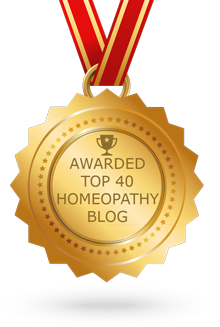Alzheimer’s and memory loss: treatments which may help
We can all suffer from poor memory as we age, and there are other factors such as stress, depression, and certain diets which can affect our memory. But did you know that alzheimers is not a normal part of aging?
A diet of healthy food, getting enough daily activity and exercise, keeping appropriate weight, and control of high blood pressure — these things lower the risk of chronic diseases and generally help our sense of well-being. Scientists are very interested in the possibility that a healthy lifestyle might delay, slow down, or even prevent Alzheimer’s.
What does the research say?
Research has shown that eating too much red meat and a high carbohydrate diet, as well as drinking too much alcohol and sugary soda drinks, have a negative impact on our brains.
Highly processed foods which are full of sugar, or high carbohydrate foods, elevate blood sugar. They are listed in the top five worst foods for memory. One of the most striking studies on the relationship between carbohydrates and brain health was published in 2012 in the Journal of Alzheimer’s Disease. It showed that eating a high carbohydrate diet can increase your risk of dementia by 89%, while eating a high fat diet lowered it by 44%. Other studies have strongly suggested that Alzheimer’s is connected to insulin resistance and even mild elevation of blood sugar is associated with an elevated risk of dementia.
Free radicals are a normal by-product of your metabolism, but in high quantities they can damage and even kill your valuable brain cells, therefore eating foods that are high in antioxidants like Vitamin C and E can eliminate free radicals from the body.
A systematic review found that eating oily fish which are rich in omega-3 oils appear to be most effective in helping human memory loss, or mild Alzheimer’s Disease.

Brain Foods
Therefore, lifestyle and diet are critical to your brain’s health. The brain-boosting foods below have been proven to help our memory:
- Almonds increase the blood flow to the brain.
- Walnuts are high in Omega 3’s.
- Pine nuts help to stimulate brain activity and are a brain food
- Blueberries and spinach improve learning and motor skills.
- Brussel sprouts contain tryptophan which converts to serotonin in the brain.
- Ginger is an anti-inflammatory, which helps protect from brain disease.
- Apples are one of the brain foods which are good for the mind and our emotions.
- Watermelon targets brain function.
- Cabbage, a high intake of cruciferous vegetables may lower the risk
of brain, lung and prostate cancer. - Lettuce helps increase blood flow to the brain and cleanses blood plaques.
- Cantaloupe/ rockmelon supports the brain.


Coconut Oil
On the topic of coconut oil, Dr Mary Newport, MD, wrote an article in 2008 “What if there was a cure for Alzheimer’s Disease and no one knew?” In this article she relayed her family’s experience with this disease and her research into a dietary intervention that may affect those with Alzheimer’s and other neurodegenerative diseases. She also published a book in 2011 “Alzheimer’s disease, what if there was a cure?”
How can coconut oil help? Fifty percent of the fat in coconut oil is lauric acid, which is a medium-length long-chain fatty acid, or lipid, which your body converts into monolaurin. Monolaurin is an antimicrobial agent that is able to fight pathogens such as bacteria, viruses and yeasts. A study in 2015 found that lauric acid can aid in weight loss and protect against Alzheimer’s disease. The majority of lauric acid is sent directly to the liver, where it is converted to energy rather than stored as fat. When compared to other saturated fats, lauric acid contributes the least to fat storage.
Turmeric
Research has shown that turmeric is effective in preventing neurodegenerative diseases, like Alzheimer’s. Turmeric may prevent and lower the progression of Alzheimer’s by removing the
amyloid plaque build-up in the brain. There is a very low incidence of Alzheimer’s among elderly Indian people. On a traditional diet, their meals are high in turmeric which may block production of amyloid protein, that is known to destroy the protective sheath that surrounds nerves. Curcumin has the effect of breaking down amyloid protein.
Ashwagandha
This herb is also known as Indian Ginseng or Withania Somnifera. Research has shown that Ashwagandha is so powerful that it can not only slow the aging process, but it is also a wonderful force against oxidative stress, cell death and cell mutation. Furthermore, the plant helps to lower cortisol levels, one of the unwanted stress hormones. Ashwagandha also has immunity boosting qualities, it greatly increases the white blood cell count and killer cells which fight disease, and has a pivotal role in fighting cancer cells, lung, breast, and colon cancers.
Promoting restful sleep, relaxation, and a better sense of wellbeing are also part of its action. Another benefit is that is has been shown to lower blood pressure and has been studied as a natural cure for neurogenerative diseases like Alzheimer’s and Parkinson’s disease as it can promote nerve cell growth.
Sage Oil
The University of Michigan conducted a study which showed that using sage oil supplement for four months significantly improved cognitive function in Alzheimer’s patients. Those participating in the study took 60 drops of sage tincture 1:1 daily. Sage oil improves cognitive functioning and helps neurotransmitters in the brain to work more efficiently. British scientists believe that sage oil may be effective in the treatment Alzheimer’s, as it inhibits the action of acetylcholinesterase, the enzyme responsible for breaking down acetylcholine.
An abnormally low acetylcholine level in the brain is a key feature of Alzheimer’s disease. There are many other health benefits of Sage oil which include regulating menstrual cycles and protecting against microbial and bacterial infections.
Gut Microbiome
Researchers have also found a significant link between Alzheimer’s and your gut microbiome. One study of 89 people between the ages of 65 and 85 years revealed lipopolysaccharides and the short-chain fatty acids (SCFAs) acetate and valerate were associated with amyloid deposits in the brain. Other SCFAs, namely butyrate, appeared to have a protective effect; high levels of butyrate were associated with less amyloid.
The Fatebenefratelli Centre in Brescia, Italy found that certain bacterial products of the intestinal microbiota are correlated with the quantity of amyloid plaques in the brain, which are found in Alzheimer’s disease.
Symptoms of Alzheimer’s
The symptoms of Alzheimer’s range from mild to severe. They come on gradually and can often take 2-3 years before it becomes severe.
Mild Alzheimer’s the disease is initially mild and begins in the medial temporal lobe, which causes problems with reading, poor recognition of people and objects, as well as a poor sense of direction.
Moderate Alzheimer’s is when the disease has spread to the frontal lobe, which means the patient has a poor attention span and can be impulsive.
Severe Alzheimer’s occurs when the disease has lasted three years or longer. The disease spreads to the occipital lobe, which can cause visual problems.
Common Alzheimer symptoms:
- Memory loss/changes in memory
- Forgetting words or substituting inappropriate words
- Problems in speaking, reading, writing, and understanding
- Disorientation to time and place
- Poor or decreased judgment
- Drastic changes in personality
- Misplacing things
- Difficulty performing normal tasks, routine chores
Homeopathy to help memory loss and Alzheimer’s
A wonderful homeopath in the US, Robin Murphy, when he was alive, used to treat patients with memory issues and Alzheimer’s, with great success. One of his great hints and tips was that he had found that the remedy Kali Phos 6C taken approximately three times a week can help those of us with memory issues.
The following list of remedies have been traditionally known for memory problems and other associated symptoms. The descriptions will help to illustrate the application of homeopathy in this condition by giving a snapshot of the remedy. Please seek professional homeopathic treatment for any serious and chronic condition.
Hyoscyamus
This remedy may help in all stages of Alzheimer’s if the symptoms fit. The patient can act as if they are intoxicated and can be hyperactive and have repetitive behaviours/gestures.
They are mentally confused, forgetting who they are and what is happening, they are restless and wander about picking things up and can often exhibit destructiveness.
Ferrum Metalicum
For those that are confused but are very sensitive to noise. They can become angry from contradiction, and can have great alteration of moods, one minute they can be excessively lively, then the next sad and melancholic. They are restless, but have to walk slowly, they may wish to be on their own and not engage in conversation.
Aluminium
Patient’s needing this remedy have difficulty expressing their ideas and thoughts, make mistakes speaking and writing, are easily panicked and suffer from confusion. Their confusion can lead to a loss of their identify and loss of recognising their family.
Agaricus
Indifference, fearlessness, singing and shouting can be seen in those needing this remedy. They are mentally and physically awkward.
The above remedies are just a few and there are many others to compare with such as Baryta Carb; Conium Mac; Helleborus Niger, Cocculus Indicus; Plumbum Metallicum; Mercury; Natrum Muriaticum; Opium; Silica and Thuja.
Four points to conclude
- Take notice of the latest research, there is plenty out there.
- Combine the consumption of brain foods with consideration of the gut microbiome.
- Use homeopathy alongside a healthy diet and it may help the persons memory issues and other symptoms.
- With a chronic condition such as Alzheimer’s it is best to consult an experienced homeopath to get the best outcome from the remedies and a nutritionist or natural health practitioner for dietary adjustments.
- Weight Loss and Glucose Management: It’s not just what we eat but how we eat - 19/06/2024
- Getting on top of your cholesterol management - 12/04/2024
- Discover the Power of Homeobotanicals - 18/03/2024



